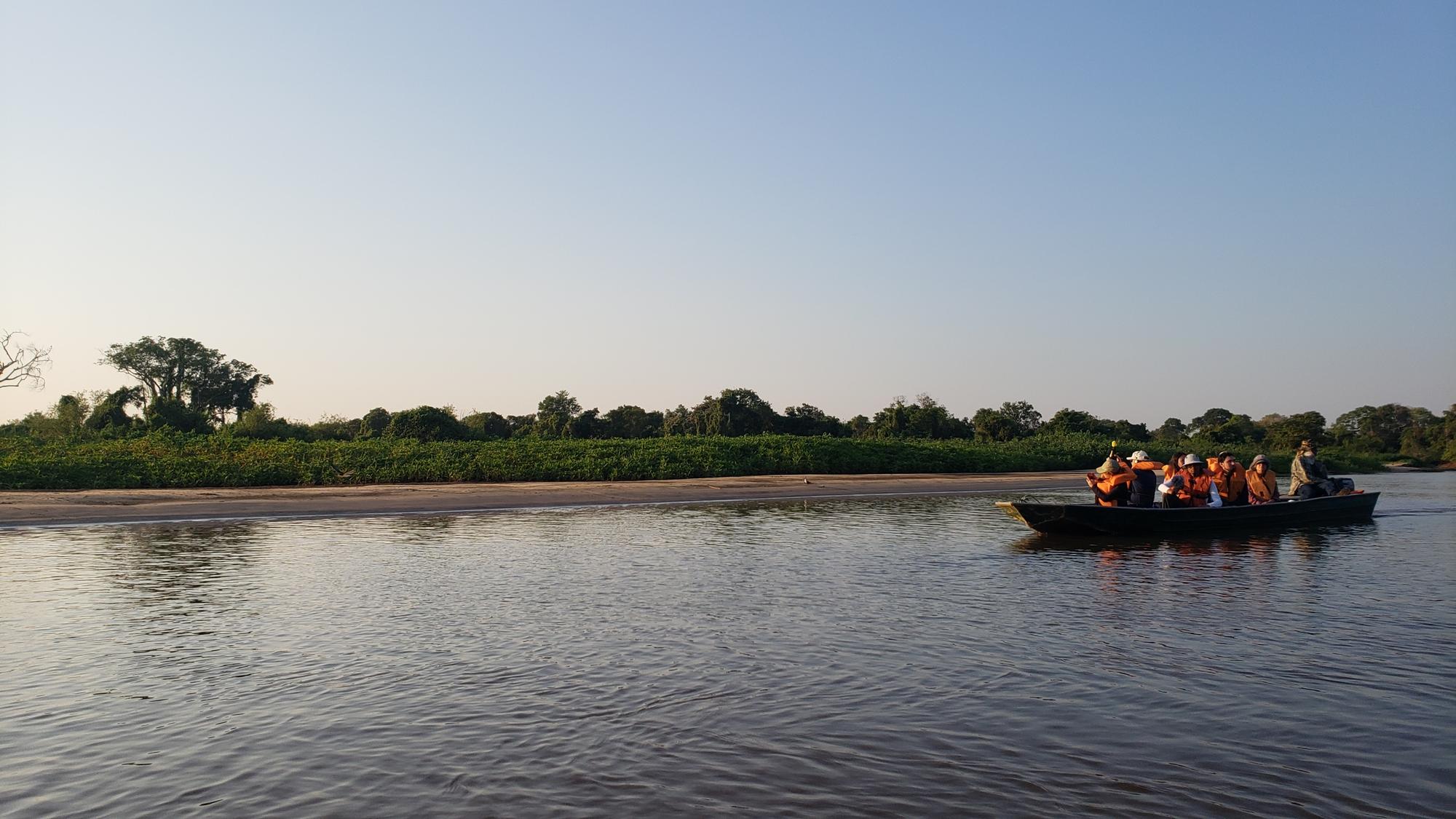
In October, transitioning from the bustling sounds of the city to the quiet Pantanal, in the Center West of Brazil, Harvard professors Hans Tutschku and Brian Farrell embarked on a mission along with Harvard Ph.D. Candidates Victor Arul and Darcy Copeland, and a Brazilian research team to uncover the hidden melodies of one of Brazil's largest biomes. Known for its abundant humid areas and diverse ecosystems, the Pantanal is often in the shadows of environmental discussions when compared to the Amazon. However, the imminent threats of deforestation and uncontrolled burning have drawn more attention from researchers to this distinctive ecosystem.
Bringing together the fields of biology and music, the expedition revolved around collecting sounds to study the scientific and artistic dimensions of the Pantanal. By capturing the soundscape of this unique environment, the researchers aimed to discover singular and inspiring sounds that can help to map animal behavior and the intrinsic dynamics between species and their habitat, providing a broader study of the possible effects of the biome's deterioration process on sound phenomena.
The interdisciplinary expedition was grounded on a collaborative effort between Harvard University and the Federal University of Mato Grosso do Sul (UFMS). In the Pantanal, the researchers worked with William Teixeira, adjunct professor at UFMS and GSAS Visiting Scholar, and his team. Setting out to explore, the team refined their awareness of the ecosystem by using the method of soundwalks. The challenging task of walking for many hours at a time in silence - the premise for the data collection to happen - could be hard, but when each person turned on their microphones and put on their headphones, they discovered their surroundings were anything but silent, with animal, insect and bird calls filling the air.
Describing the Pantanal as a humid oasis in a dry region is not enough to capture its true essence. The sounds emanating from this complex ecosystem create a vibrant symphony of nature. The journey allowed the team to see rare glimpses of endangered species, like the majestic blue macaw, and to even hear the roar of the elusive jaguar. These encounters awakened a profound sense of awe and fascination in the researchers, underscoring the significance of international partnerships, especially in the context of such unique exploration projects.
The expedition proved to be a once-in-a-lifetime experience for the researchers. For Professor Brian Farrell, “this particular field trip is one of the very best I have ever had.” He notes that as his field trips usually involve companions who are mainly biologists with a strong focus on visual aspects through lenses, being accompanied this time by fellow researchers with a strong interest in listening exploration was truly exceptional. “The word has been overused, but it has been transformative."
Similarly, William Teixeira expresses that the experience will undoubtedly be a landmark in their careers and lives. He emphasizes that “being able to work in such a cooperative environment and share so many different perspectives and knowledge with such high-level researchers was really meaningful” and finishes by saying that “this field trip will undoubtedly shape the way we do research and pursue new projects in the future”.
The multidisciplinary nature of the project, made possible by a David Rockefeller Center for Latin American Studies Faculty Research Grant, promoted an innovative exchange of knowledge and methodologies. As a result of the research, the team expects a full repertoire of musical pieces to be premiered in 2024 by musicians from the Federal University of Mato Grosso do Sul, in addition to scientific articles that will analyze the collected data. Far beyond that, the project demonstrates the importance of complementarity between different fields and universities for a holistic understanding of a subject. This resulting blend of intellectual and artistic knowledge will serve as a powerful reminder of the urgent need to defend the environment and preserve the Pantanal.
If you are interested in learning more or participating in our upcoming Amazon expedition, click here.
Written by Maria Lidiane Rodrigues, Communications Intern, DRCLAS Brazil Office.



